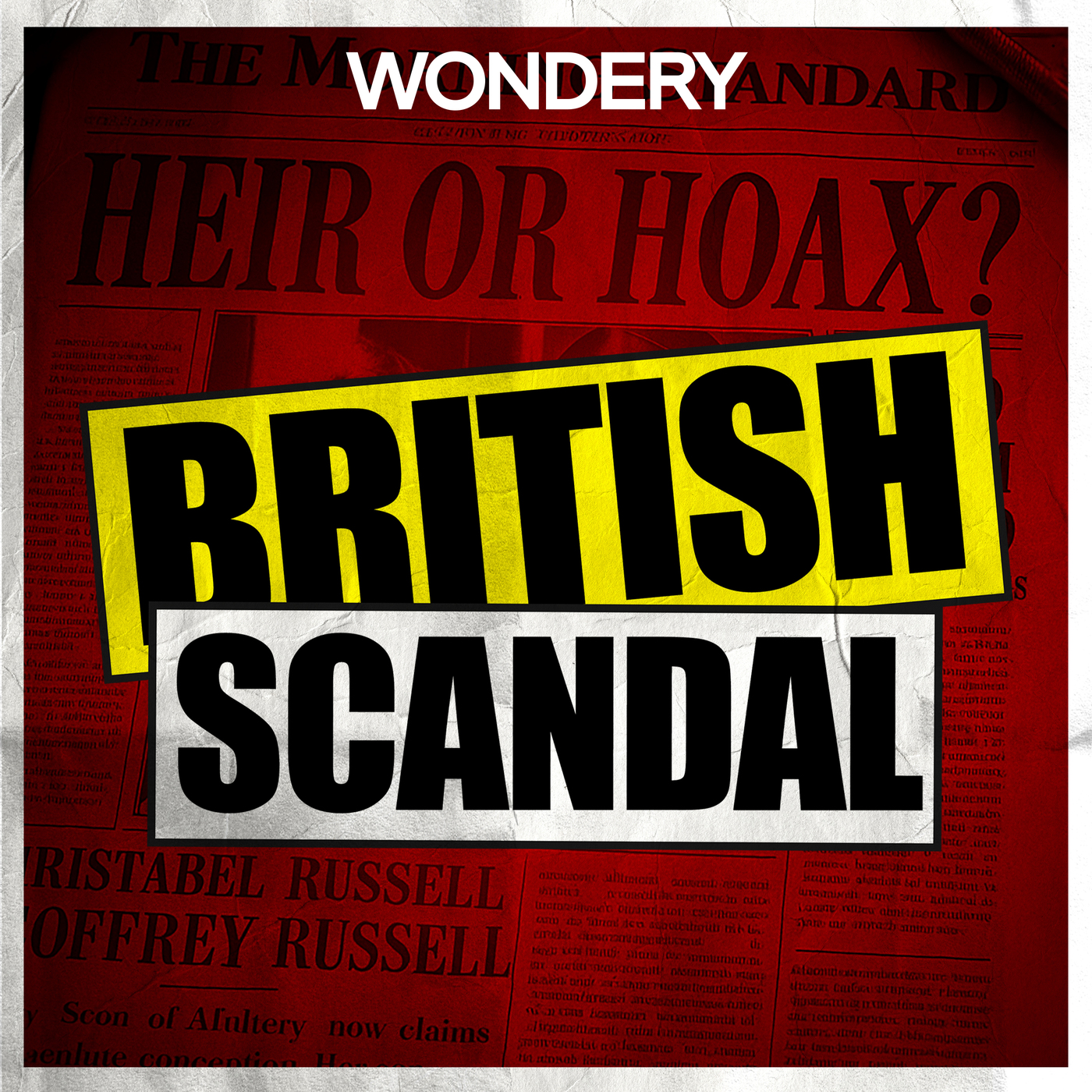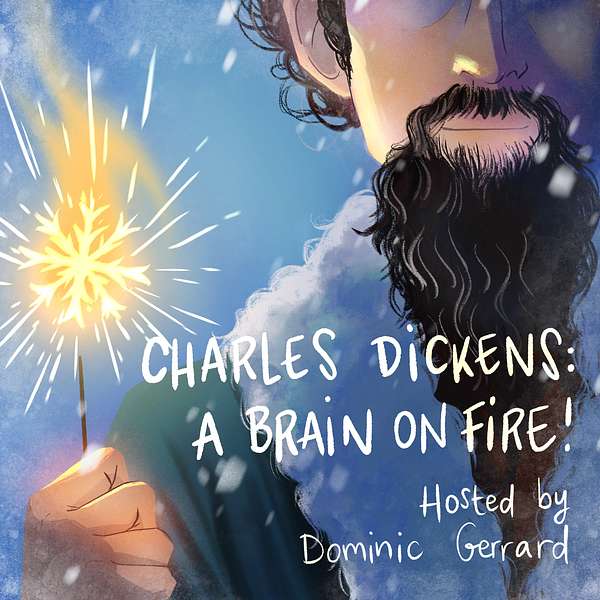
Charles Dickens: A Brain on Fire! 🔥
Guests include: Stephen Fry, Miriam Margolyes, Armando Iannucci, Alice Loxton, Robert Douglas-Fairhurst, Lucinda Hawksley, John Mullan, Pen Vogler, Andrew Davies, Rosie Holt, Bernard Cornwell .... and many more academics, writers, actors, directors and descendants of the great man himself!
Along side these interviews there are special Dickens readings from across his works ...
Thank you for listening 🔥
Charles Dickens: A Brain on Fire! 🔥
Stuffed (A History of Good Food and Hard Times in Britain): with Pen Vogler
Dominic is joined by the award-winning author and food historian Pen Vogler who offers insightful reflections on how Charles Dickens used food as complex metaphors in his novels, that reflect the psychological and societal shifts during the Victorian era. The richly detailed food descriptions in works like A Christmas Carol and Little Dorrit reflect not just the era's celebrated dining etiquettes but sometimes Dickens' own discomfort in these settings.
From Pen's new book Stuffed there's also a hearty discussion on the role of food in society, particularly concerning feeding children, an issue highlighted more than ever during the pandemic. With a nod to the inspiring campaign by footballer Marcus Rashford, Pen finds parallels in Dickens' advocacy for children's rights and a nation's duty to nourish its future generations. We take a bite into history with the contentious debates in Parliament over this responsibility and the impact of land Enclosures on the food system.
Get ready also to rediscover the culinary history of forgotten ingredients like caraway seeds and dried broad beans. Pen also promises a future Christmas episode. So sit back, savour the flavour of history, and let's dig in!
If you'd like to make a donation to support the costs of producing this series you can buy 'coffees' right here https://www.buymeacoffee.com/dominicgerrard
Thank you so much!
Host: Dominic Gerrard
Series Artwork: Léna Gibert
Original Music: Dominic Gerrard
Thank you for listening!
Hi everyone. For today's episode, part of my preparation involved preheating an oven to 200 degrees Celsius or 400 degrees Fahrenheit, preparing a dough and mixing in some very rare and special seeds, which we'll come to in a moment. In short, I made a dozen biscuits that a young David Copperfield presents to Miss Shepherd and a Bob Sawyer to Arabella Allen. This recipe, amongst many others, can be found in the book Dinner with Dickens written by today's guest, the award-winning food historian and author Pen Vogler. Pen's books include Skoff, which won the Times and Sunday Times History Book of the Year, dinner with Darcy and Tea with Jane Austen.
Dominic Gerrard:When I first began this series, I invited Pen to be a guest, but she was too busy writing her latest book Stuffed: A History of Good Food and Hard Times in Britain, published by Atlantic Books, which is now out in the shops and follows the Dickensian theme of plenty versus scarcity for the lives of the British people throughout centuries of social upheaval and how a national identity can be inextricably linked to the food we eat and how food can be politicised.
Dominic Gerrard:I'm reminded of the words of a recently sacked UK Home Secretary who stood up in Parliament and, instead of using the chamber to engage in serious political debate, chose clickbait instead when she described the opposition parties as belonging to the tofu-eating wokorati. It was later pointed out that the Home Secretary herself is in fact a vegetarian, so she's hardly about to eat roast beef and Yorkshire pudding on a Sunday. But then that's populism for you - you never quite get what it says on the tin. Thank God for Marcus Rashford, but more of him later. It's time to welcome the inimitable Penn Vogler. Penn hello and welcome to Charles Dickens, a Brain on Fire. It's so fantastic to have you here.
Pen Vogler:Thank you so much. Talking about Charles Dickens is one of my favourite things, so this is such a pleasure for me.
Dominic Gerrard:Thank, you Not at all. This is my first question, in a way. What is the connection for you between Dickens and food, Because you've brought these two together so powerfully in your book Dinner with Dickens and your Christmas book with Dickens as well? Where did that start for you.
Pen Vogler:Well, it starts with Dickens, doesn't it? It started for me as a food historian, or a kind of wannabe food historian really. I'd written about Jane Austen and food, which is actually very, very rewarding but a little bit difficult because she's so sparing with the way she writes about food and everything she says. You have to mine it for the detail and the kind of social context and what she's telling you about social relationships and status and etiquette and it's all in there. You have to kind of unpack it. And then Dickens seemed to be such a joyous contrast because he seems to kind of lay it all out on the page. He's a feast, whereas Jane Austen is a kind of very delicate little glass of wine and a nibble. It's all there on the page. He talks so much about food. At first it seems that it's very obvious. He loves that people sit down and they eat and drink and feast together. And actually the more I looked at it, the more complex and more psychologically conflicted it appears that all those descriptions of food are in his novels.
Dominic Gerrard:So it became irresistible really what I find interesting is, I would imagine what we think of the Georgians. You would imagine, possibly, that they would be more expressive about food and that the Victorians would be the ones that have, oh, just a little nibble and no more, that they would be more puritanical with their food. But actually it seems to go the other way. It seems to really explode in the Victorian era.
Pen Vogler:Something happens in the Victorian era around people's confidence with food. If you think about pride and prejudice, you think about Mrs Bennett. Mrs Bennett, in the late Georgian period, wants to give her family dinner and she knows exactly what that looks like Partridges, it's venison, it's good, fresh, local, what we would say local, seasonal fresh. She'd send her housekeeper to the farmers market to get it. And then, of course, even 20 or 30 or 40 years later, when Dickens starts to write about food, that landscape has changed a lot and so aren't Dickens' lifetimes.
Pen Vogler:Out the Victorian period you get a huge amount of change just in the way people think about what food is for. In the Victorian period you get this massive change of industrial kind of Britain. You get these cities and you get people who have much less people in cities, like the Cratchit family, who have much less access to kind of good food. But you also get this kind of growing almost like a flexibility of status, a flexibility of class, and so people in the elite use food and etiquette and manners and all the stuff around it to put everybody else in their place. And that's why the Victorian I'm not talking about Dickens particularly, but the Victorians themselves have quite a complex attitude to food and they see it as they see it a lot in terms of status and so they see it in terms of posh food as French food for the Victorians and the way that it wasn't for the Georgians, and that's how they try and impress each other.
Pen Vogler:And actually, going back to Dickens, this is what becomes so fascinating, because you realise that he's entirely mistrustful and uncomfortable in those food surroundings and all the big posh French or kind of high society or feasts or attempts to impress other people in Dickens are quite uncomfortable places. If you think about little Dorrit, you know and her dad is the second half of the book, I dad is out of prison and they're having some amazing big feast somewhere and his mind starts to wonder and he starts talking about you know, we going to be locked up. He thinks he's back in the martial sea present, and you can see that for dickens that kind of big, fancy social occasion Can be a very uncomfortable one when it's done for show and not for kind of companionship and affection.
Dominic Gerrard:Yes, I think there's a really interesting part in your dinner with dickens I'm holding. I've got two books in the house which the viewers can't see but they'll be links in the in the link wherever you're listening to this. But in dinner with dickens I love this description is from 1843.
Dominic Gerrard:That you've highlighted where I think jane carlile yeah, isn't she wonderful, love jane carlile she has a real go at dickens cuz she has dinner on the 23rd of december 1843 and just the very candles rose, each out of an artificial rose. So there's this real sense of kind of new money in bling and ghostness to, which is quite funny.
Pen Vogler:She is very, very funny, jane carlile letters of various urban, very kind of spiky, very witty, and she is saying it's, she says in that piece, so unbecoming in a literary man, you know, and she's saying exactly that he is trying to aspire and show an aspiration to a status that she says, you know, he doesn't really have. A little man doesn't have. I'm not sure jane carlile was, you know, the kind of posh's person. I think she just love to kind of needle other people's foibles.
Dominic Gerrard:But what I found interesting from dinner with dickens as well, is that I mean my perception about victorian. But actually so many of the recipes in this book are amazing. They look really delicious and you know, I'm just looking at the enormous 12 cakes, the big blues and and, yeah, the pies.
Pen Vogler:I mean kind of victorian food. One is the one that I kind of cover in a way in dinner with dickens, because a lot of the inspiration for that comes from dickens's wife Cassvin, who had a menu book called what should we have for dinner, and it shows what a kind of middle class Family person would have for a kind of small family meal or you know a big kind of lavish entertainment for 16 to 18 people and on the whole it's pretty delicious. You know it's very solid, very solid. You know there's quite a lot of. There's a lot of cheese, there's a lot of melted cheese, there's a lot of kind of fried food, also substantial stuff, but you know I wouldn't say no to any of it. But that would poison is fascinating because For many people in dickens is London particularly towards the well, right in the middle, but towards the end of the century as well, their food really literally was poisoned and there was this massive thing, this adulteration crisis in a 19th century british cities where Retailers started to kind of adulterate their food was absolute rubbish, you know.
Pen Vogler:So the bread would be cut with only minimum salt, so it might be cut with Plaster of Paris, even crazily, you know, and they'd be arsenic in the vinegar and sort of beer would be watered down and then a little drug sort of dog that would make you slightly crazy, called cockles indica, might be added to it. Everything would either be adulterated with color or flavor, particularly coloring, you know, lead and copper and sort of mercury, really quite toxic substances to make food look Pretty, make pickles look green or make green tea green, all kind of bulked out with things to make it cheaper. People were literally being poisoned by their food and it was a crisis that went on throughout the whole, of kind of dickens and dickens, I think, was some. I think dickens was aware of it, I mean in household words. I don't think he particularly covers it, but I do think he was aware of it a bit.
Pen Vogler:And but there were people like the journalist Augusta Salah, george Salah rather, who says some. He said he wanted his pickles to be bright green. You know he wanted his anchovies to be bright red. That's what he was used to. And there was a long. There's a lot of campaigning by medics, by scientists, by chemists, by doctors, by the Lancet, eventually just to kind of get rid of adulterated food, to bring in food standard Laws that would make food safe and nutritious again for everyone.
Dominic Gerrard:That's so interesting because I've only really started stuff, but I haven't got to the point where you talk about mustard yet. Yes, yes, yes, mustard.
Pen Vogler:A problem because everything was a problem. That was crazy about it. So there's this wonderful chemist and physician could also hill hassle and he Manages. He manages to show because he uses a microscope. For the first time he shows the adulteration of coffee. He shows that if you look through a microscope that some of this is coffee and some of it is chicory and some of it is, you know, leaves of From the bushes or something you know.
Pen Vogler:And the editor of the Lancet, the doctors general, been looking for a way to kind of foreground is some work on adulteration. He asked him If he would do a report by going to shops all over London buying normal stuff pickles, mustard, bread, whatever Analyzing it, publishing the results and kind of naming and shaming the people who sold it. And it was a phenomenally successful intervention and it led eventually To legislation for cleaner food. But yes, it's exactly so. Every you know everything was adulterated. In particular, if you're poor, it was almost impossible to get good food. But even Eliza Acton, who was very, was contemporaneous with Dickens, was a cookery writer, very, very good cookery writer. She says If you want to get decent vinegar, sent to France for it, there's no way you can buy an adulterated vinegar in London. Wow, I know, it's quite wow, isn't it? But you know the parallels with today and what we're beginning to learn.
Dominic Gerrard:Processed food, about ultra processed food.
Pen Vogler:Yeah, the parallels are extraordinary. I think very useful because if people care enough and are angry enough, something will change.
Dominic Gerrard:Yes, that's it. It's interesting you say that because I really I really sense your passion for this and I really get it out of the pages of stuff. I really really feel that there's a true cause there and a right cause that you are getting behind in so many areas. You know, you quote contemporary politicians in Britain. It's very focused on Britain actually, isn't it as well? Which?
Pen Vogler:is very interesting.
Dominic Gerrard:It's totally Britain, yes, yeah, the island story and that, just you know, in 2020, as you were saying about Marcus Rashford and his campaigning, for example, we've got quite a lot of listeners from abroad for this series. Would you talk a little bit?
Pen Vogler:about that. Yeah, so in the pandemic we had this extraordinary situation where school children who were who should have been at school obviously weren't. They had school dinners, lunches, but during the holidays their local authorities weren't paying for them to have school meals and they were probably going hungry. And Marcus Rashford, who is a Manchester, is that right.
Dominic Gerrard:Manchester.
Pen Vogler:I think so. Yeah, and England as well. Football player who himself had had free school meals as a young kid, very grateful to what they did for him, said this is crazy. We're paying millions of pounds towards furlough and all that sort of, and yet we cannot pay for hungry kids to have a bit of food. That's bonkers. And so he launched this kind of campaign to get the government to change its mind, because the House of Commons had voted against feeding hungry kids in a pandemic, you know. And what was so wonderful about it was that so many people rose to the occasion, so many small shopkeepers and cafe owners, and they said come to my shop, this is who I am, no questions asked. We will give you what we can. We'll give you some soup or sandwich or whatever it is. You know pot meal. And it was like real Dunkirk spirit, you know little hill of small boats. And it shamed the government into changing its legislation eventually.
Pen Vogler:But a lot of those ideas that are in that book about the rights that children have, but also why a country needs to feed its children, all of that for me comes from Dickens. All of that comes from his life, his childhood, his understanding of the rights of children and what children need for sort of emotional security, how they need to be fed by somebody, for kind of emotional security as well as physical. Our kids are our future. You know you've got to kind of feed kids. You can't just sort of starve them and not educate them, because the country needs them going forward and I think that's a message that comes out of Dickens very strongly for me, absolutely.
Dominic Gerrard:And you think of Nicholas Nicolby as well, and do the boys haul and Wackford Squares.
Pen Vogler:All that. And then feeding the boys you know kind of torturing the boys with little sips of milk and things torturing them and it's all in the kind of this idea of us it's good for their immortal souls, but really that's a cover, it's just it's meanness and it's it's a kind of weird false economy, and I think that's one of the things that Marcus Rashford was saying and this is one of the things that Jamie Oliver says.
Dominic Gerrard:I find it astonishing also that you have these two polarized positions in Parliament. You have the side that's saying the state must provide for children, and then you have the other side saying no, no, no, no, it's not up to the state, it's the parents. The parents should be doing this, the state shouldn't interfere. And then there's no middle ground where you say, well, yes, parental responsibility, but whether parents can't handle it or their family is going to the wall, you need to step up, which is obviously what happened, which was a real, yeah, it was an excellent moment, wasn't it? Yeah, yeah, when that happened.
Pen Vogler:Yeah, I mean Dickens is again really really interesting in this because he doesn't trust institutions. You know, understandably, no institution in Dickens comes out well, does it? It's always an individual who comes and saves Oliver Twist or Nicholas Nicolby or the Cratchit family. It's always a kind of personal responsibility of somebody looking out for other people who are unfortunate or connected to them, and I can see that Dickens doesn't kind of trust institutions, you know, because they let him down. You know he fell through the safety net, he wasn't educated, he wasn't looked after as a child, and both his parents and the institutions that should have been looking after him failed him. And so you can see why he's always looking for an individual to kind of come and be a savior. But in 2023, we should be a little bit more sophisticated than that and not expect every person who's in dire, you know, who's kind of struggling to feed their kids. You can't expect a savior to come along and help them. You need a kind of bigger food system that is able to feed people.
Dominic Gerrard:It's not an argument that you have to be made anymore, really, isn't it?
Pen Vogler:Isn't it amazing? Isn't it amazing that we still have to say feed kids. It's a good idea.
Dominic Gerrard:What I love, also about stuff, and it's really kind of set my mind going and I can't wait to carry on with it, because I think you divide the history of food into BE and possibly AE. So before enclosures and after enclosures. Now again Penn, if you don't mind just explaining a little bit to us that don't know about really what enclosures were.
Pen Vogler:Yeah, the enclosures were. The enclosures are the heart of this book, actually, because I didn't know very much about the enclosures and still I started writing my other books off and when I discovered them I was horrified because the enclosures were a system that starts quite early. The first enclosure actor, I think, is 1604 or something and the last one is about 19 something, 18 or 1920. So they go on for a long time and what happens in the enclosures is that land that is not owned by commoners common people but is used by them. So it's owned by the church, it might be owned by a landowner, but it just is used in common and people use it to graze their geese or their ducks or their pigs in woodland, or their cattle or their sheep or whatever. They collect firewood, and it's just land that's available for people.
Pen Vogler:And what the enclosures meant was that the landowners went I'm really sorry, but or they didn't even say sorry, we're going to fence it off, so and you can't use it. Any law, we're just going to put probably sheep particularly in Scotland and where it was called the clearances, not enclosures or cattle, because that's how we are going to get rich and if means that you have no access, your whole system of domestic economy is totally scuppered, which it was. That was just tough and that lays the groundwork for people moving to the cities, because people's like the whole, you know, their domestic kind of lives were completely sort of upended. And there was other things going on big population explosion, and that's why so many people moved to the cities. You have this big population that can work in industry, and in Scotland it's slightly different. People were kind of pushed off in the clearances, pushed off to the margins, not to work in industry but to work in fishing, to work in the herring fisheries, whether the herrings were there or not.
Dominic Gerrard:And it happens over quite a long period of time.
Pen Vogler:It is a long period of time, yeah.
Dominic Gerrard:Is it around the 16th century that it starts? It starts around.
Pen Vogler:Yeah, it starts around the early 17th century, so around sort of 1604 or something, but it probably was happening informally before then. But what happens to that date is the first enclosure act. So that's the first time Parliament goes, yes, right, we're going to support this. We're going to pass an act that says this bit of land is now going to be fenced off, ditched off headstaff and not used, not be available to be used in common. But the word in common is really important because we are commoners, we have a house of commons and we have common ideas. You know, we talk now about the creative commons, we talk about the blue commons.
Pen Vogler:This idea of something being in common was really central to that part of my book. Because if you start thinking, okay, we're going to divide up the land or whatever we get our food from, so that it's not in common any longer, you think, well, who then takes responsibility for all the people who kind of pushed off it? And of course, it's the question about the environment. You know, if you divide up a water so that somebody else is owning, supposedly, our water treatment system, are they going to take responsibility for it? Well, obviously not. At the moment we have this big problem in Britain if you're not in Britain, with water companies pumping sewage into the seas and the lakes and the rivers that should, by rights, belong to all of us.
Dominic Gerrard:Yes, yeah. And then there's the agriculture as well, with farming cattle and all of that.
Pen Vogler:Yeah, and so we become a very meaty, very meat-based country. You know, we've always kind of liked our beef. The history of British food is the history of beef and beer and then latterly sugar. But that focus on reducing beef for the good of the nation, because it feeds the nation's economy, rather than using the turnips, for example, that are fed to the cattle. And so I think our sort of beefy obsession which, again going back to the environment is probably not that good for the environment, it's probably terrible for the environment. You know that starts around the same time. That's interesting, isn't it?
Dominic Gerrard:Because also it's only occurred to me reading your words is the idea that food linked to patriotism as well the roast beef of old England. Oh, yes, yes, that you're a true Brit and obviously with the French, for example, would have called us beef eaters in a derogatory sense, but we take it as a badge of honour.
Pen Vogler:Yes, Well, they call us lay roast beef apparently.
Dominic Gerrard:Yes, at a nation of shopkeepers, at a nation of shopkeepers yes, but from your dinner with Dickens is there a recipe that you would still eat today, that you happen to favour, that you like?
Pen Vogler:Oh goodness, loads of them. The one I make over and over again is Eliza Acton's Gingerbread.
Dominic Gerrard:Oh, yes, I looked at that. Yeah, I didn't do it.
Pen Vogler:You mentioned Eliza Acton a minute ago. She was fantastic. She was a precursor to Mrs Beaton and actually Mrs Beaton stole most of her recipes for her own cookbook. She was just a very talented home cook. She lived in France for a while. She obviously learned a lot from the French. She's very funny as well. She gives some kind of funny titles and she was probably the first person to give a recipe for what we call Christmas pudding, rather than what Dickens calls in a Christmas Carol plum pudding. Right up to then, plum pudding was always known as plum pudding. Then, after a Christmas Carol, it starts to get known as Christmas pudding. Her recipe for Christmas pudding is a really good one. I think that's one I use in Dickens' book. Amazing, her recipe for gingerbread. I made that last week, in fact, for a whole load of people, because it's a big old cake that can feed a lot of people Because it's made with treacle.
Pen Vogler:It's made with black treacle. She makes hers with just black treacle and I do half and half black treacle. Golden syrup Treacle has this magical quality it absorbs water from the air. Anything made with treacle will keep for a really long time. It won't dry out, essentially. So, parking, gingerbread, all those things keep really well because of treacle.
Dominic Gerrard:I've had an attempt at making David Copperfield soft CD biscuits. Here it is. Here it is.
Pen Vogler:Say that looks really good.
Dominic Gerrard:Does it? What do you think?
Pen Vogler:Yeah, oh, I give that 10 out of 10. Yeah, definitely.
Dominic Gerrard:Would you really?
Pen Vogler:Oh, that's lovely, I'm going to take a bite now and I'm going to tell you how good, to try and describe it.
Dominic Gerrard:Oh, wow, Wow. There's a real shooting taste, isn't there? Did you use cow away seeds?
Pen Vogler:or proper seeds Cow away.
Dominic Gerrard:Yeah, exactly, cow away seeds, cow away is really distinctive. And I didn't really know what they were.
Pen Vogler:They're really good. You can use them with sort of savory as well as sweet things. They're really, they're quite a bit. And so if you see something, if you see in Jane Eyre, for example, when she's at the Garcy Lowood School she's given by the lovely headmistress Seed Cake and she says we dined she and her friend dined, as if on Ambrosia that night, because she's given us Seed Cake and that's probably she doesn't say that's probably cow away seeds cake. So it has a very Victorian taste to it.
Dominic Gerrard:But I love them. I really like that because it might sound odd, but it feels very savory as well as sweet. Kind of there's a sweet at first, and then the savory kind of thing shoots through it's quite anisid.
Pen Vogler:Yeah, it's that kind of family.
Dominic Gerrard:I see yeah.
Pen Vogler:Oh well, very good. Well, thank you for this recipe.
Dominic Gerrard:So we're going to carry on with these.
Pen Vogler:That's brilliant, but they were David Copperfields. Just because David Copperfield is all. It's the only one of Dickens's books where he talks a lot about kind of sweet stuff. Most of the food he talks about in his books is savory and obviously I expect that reflects his taste. But there's so much about childhood longing and childhood tastes and kind of childhood love in David Copperfield and that's where you see gingerbread and you have these kind of funny little CD biscuits and he gives almond cakes a steer force and you never know with Dickens how much is conscious or how much just flows out of him.
Dominic Gerrard:Yeah, yeah, and something that reminds me of something you said a long time ago, I think, in an interview, about how, in great expectations, they have the savory pork pie at Christmas and how that's actually your old fashioned. But then, of course, so much of what Dickens writes, he's writing in the past, isn't he? He's writing back a good 30, 40 years into the Georgian period, but again, the idea of a pork pie as the celebrated food.
Pen Vogler:Christmas, christmas, christmas treat, your Christmas treat. Yeah, because again, in that you're really right to kind of locate it in that kind of period where it's just everything is changing. It's because the agriculture is changing. People are learning techniques for kind of keeping their animals alive for longer over the winter, and before those techniques you have to use up all your fresh meat in November and December. That's why we have Christmas. It's because that's when animals are fat and delicious and before they and we have to compete each other for scarce grain resources over the winter, and then you have length and you have to kind of not eat them at length because you have to let them reproduce, otherwise you don't have any animals for next year. So that's why we have Christmas, and a pork pie is to use up all that nice fresh pork before it goes off, and that's why it becomes a Christmas dish, you know, because after that it's bacon or kind of very salted pickled pork, salted meat, and after that it's lent until Easter.
Dominic Gerrard:Are there techniques from Victorian cooking that you carry forward yourself or you would recommend we might learn from?
Pen Vogler:Oh, that's such a good question. There are definitely, definitely recipes that I don't think we should forget. So Dickens himself particularly enjoyed a leg of mutton stuffed with oysters and you think that's bonkers, that's crazy. But really what oysters are doing is that they're umami, they're kind of the salty, deep sort of savouriness. But you can do the same with anchovies, for example, and so if you cook some lamb or some mutton long and low with anchovies, the anchovies will just kind of disintegrate into the sauce, into the gravy, but you'll have this lovely kind of deep, very, very savoury taste as a result of them. And that comes from Dickens and loving, you know, mutton stuffed with oysters. I mean, I'm quite a kind of solid English cook and I quite, you know, I quite like all this kind of solid English, solid kind of almond cakes and solid ginger cakes and all the rest of it. And seeds I think definitely they use some seeds and caraway seeds. We've definitely forgotten. We could do with reusing.
Dominic Gerrard:Yeah, my God, it just blew my head off just then. I was an amazing taste that I hadn't noticed before.
Pen Vogler:And things like kind of beans. I think one of the things one of the chapters I have in stuffed actually is about broad beans, because before the Colombian exchange, so called, we did not have any other type of bean in this country and we lived on beans and peas in the winter, dried, when there was almost nothing else around. I keep on trying to find broad beans in my local health food shop or supermarket dried, and you can't. You can find dried every other type of bean pinto, a damami, a zuki, blah, blah, blah but not broad beans and they. So I do think that we should bring back a bit of a love for broad beans, because I rather love them and they're very nutritious, and grow them in this country and you can dry them, you can have them in tins, you can have them frozen or whatever.
Dominic Gerrard:Oh, here here. On that note, yes, thank you so much, penn, and I'm so looking forward to having you back to do a special Christmas episode, which will be really fun in a few weeks time. But thank you so much. It's been lovely meeting you to talk about this, and Stuffed is out now in the shops. There's a link for you all to go on to and buy it. But thank you so much again.
Pen Vogler:Oh well, thank you. Lovely questions, Thank you.
Podcasts we love
Check out these other fine podcasts recommended by us, not an algorithm.

A Jane Austen Year
Jane Austen's House
Dan Snow's History Hit
History Hit
The Rest Is History
Goalhanger
In Our Time
BBC Radio 4
The Rest Is Politics
Goalhanger
The Rest Is Politics: US
Goalhanger
The Rest Is Entertainment
Goalhanger
The Trawl
Jemma Forte & Marina Purkiss
Empire
Goalhanger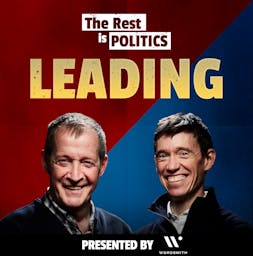
The Rest Is Politics: Leading
Goalhanger
Page 94: The Private Eye Podcast
Page 94: The Private Eye Podcast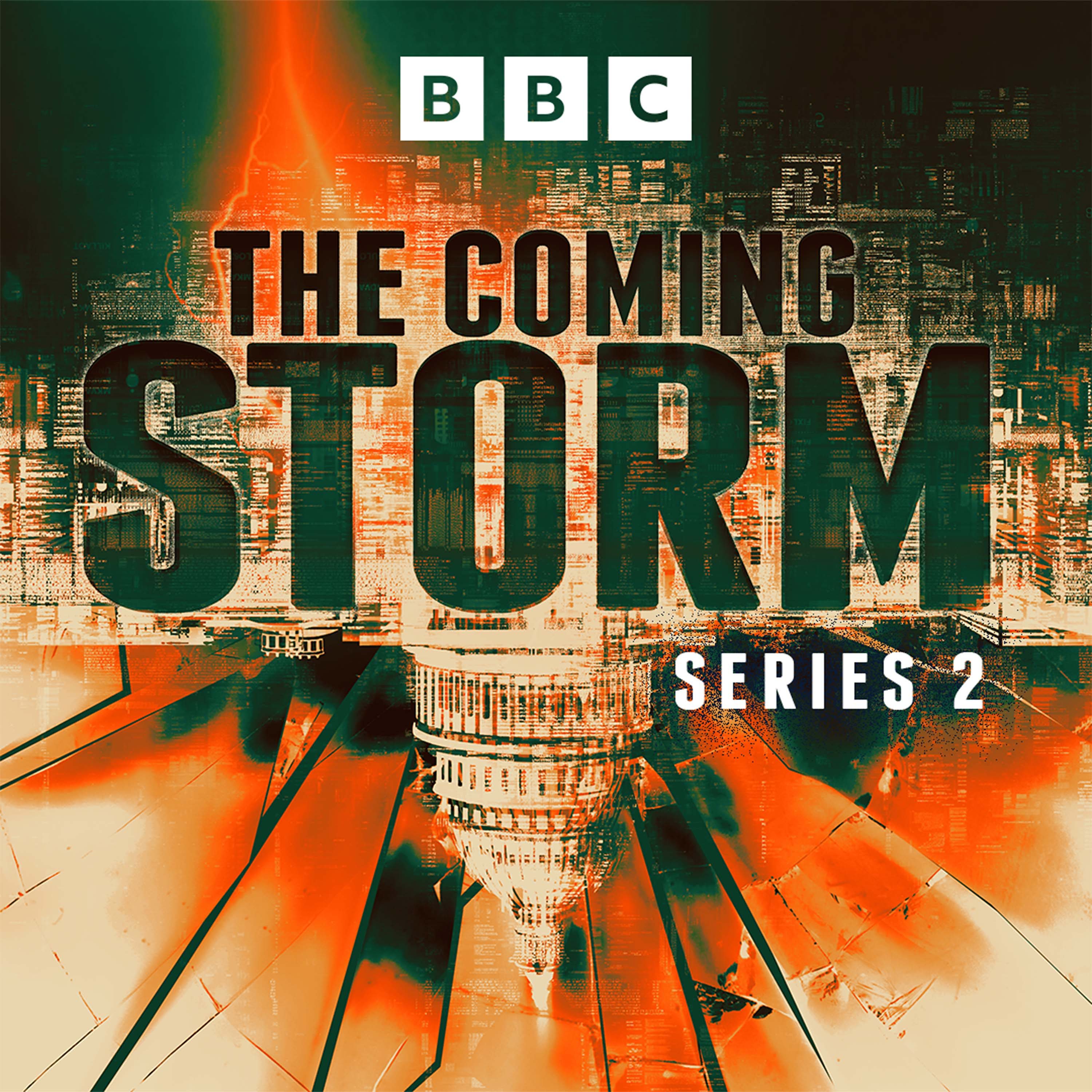
The Coming Storm
BBC Radio 4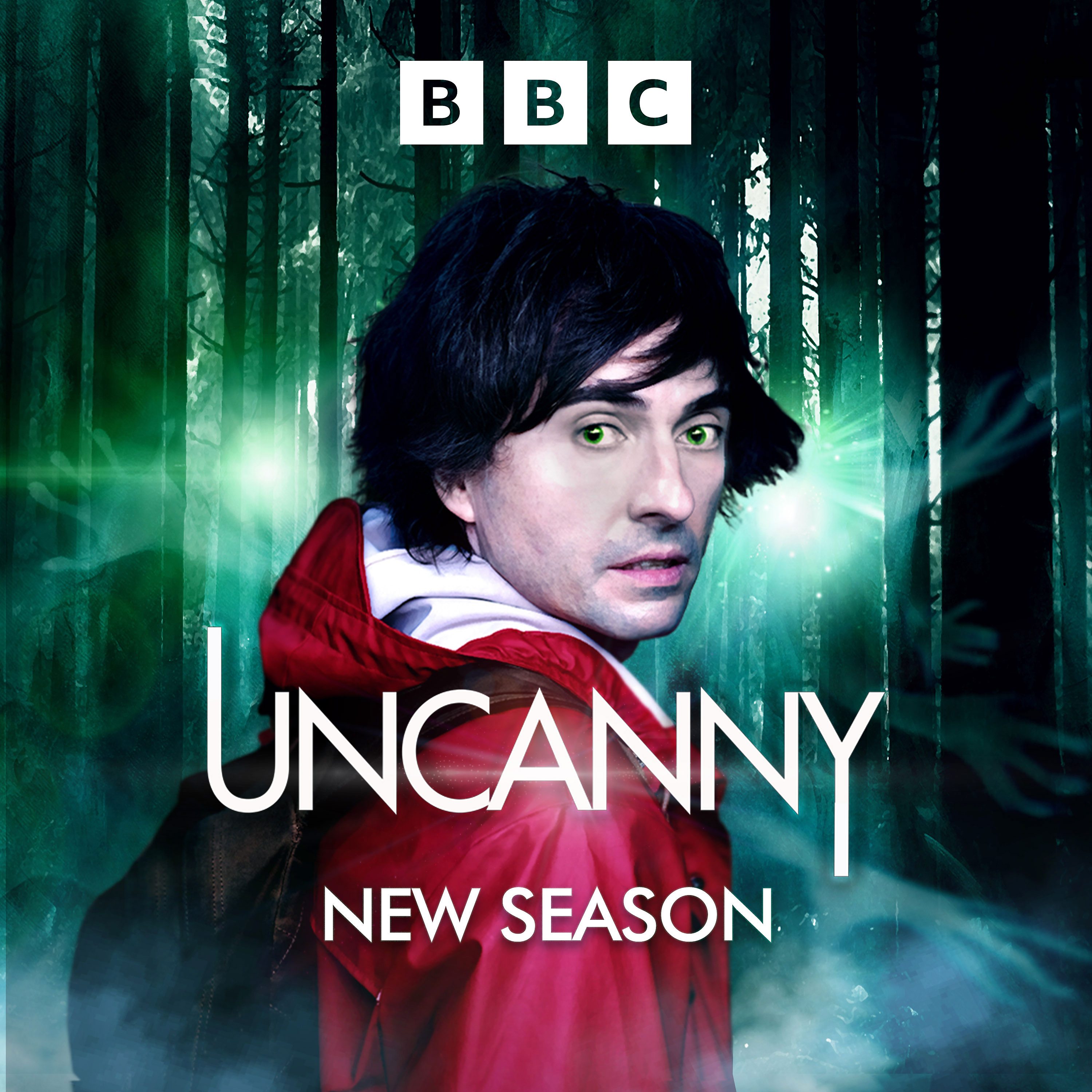
Uncanny
BBC Radio 4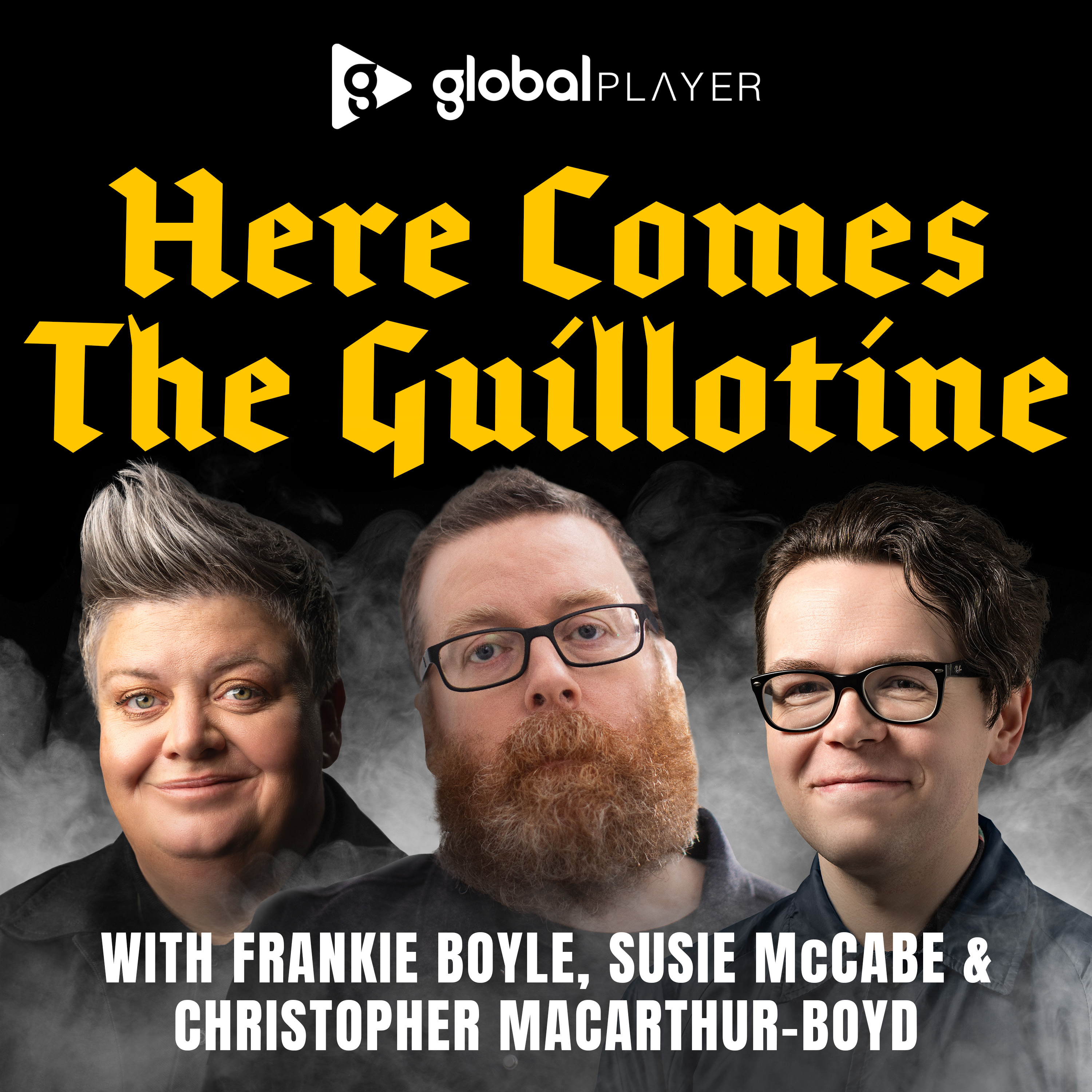
Here Comes The Guillotine
Global
The News Agents
Global
The News Agents - USA
Global
Pod Save the UK
Crooked Media
Daily Politics from the New Statesman
The New Statesman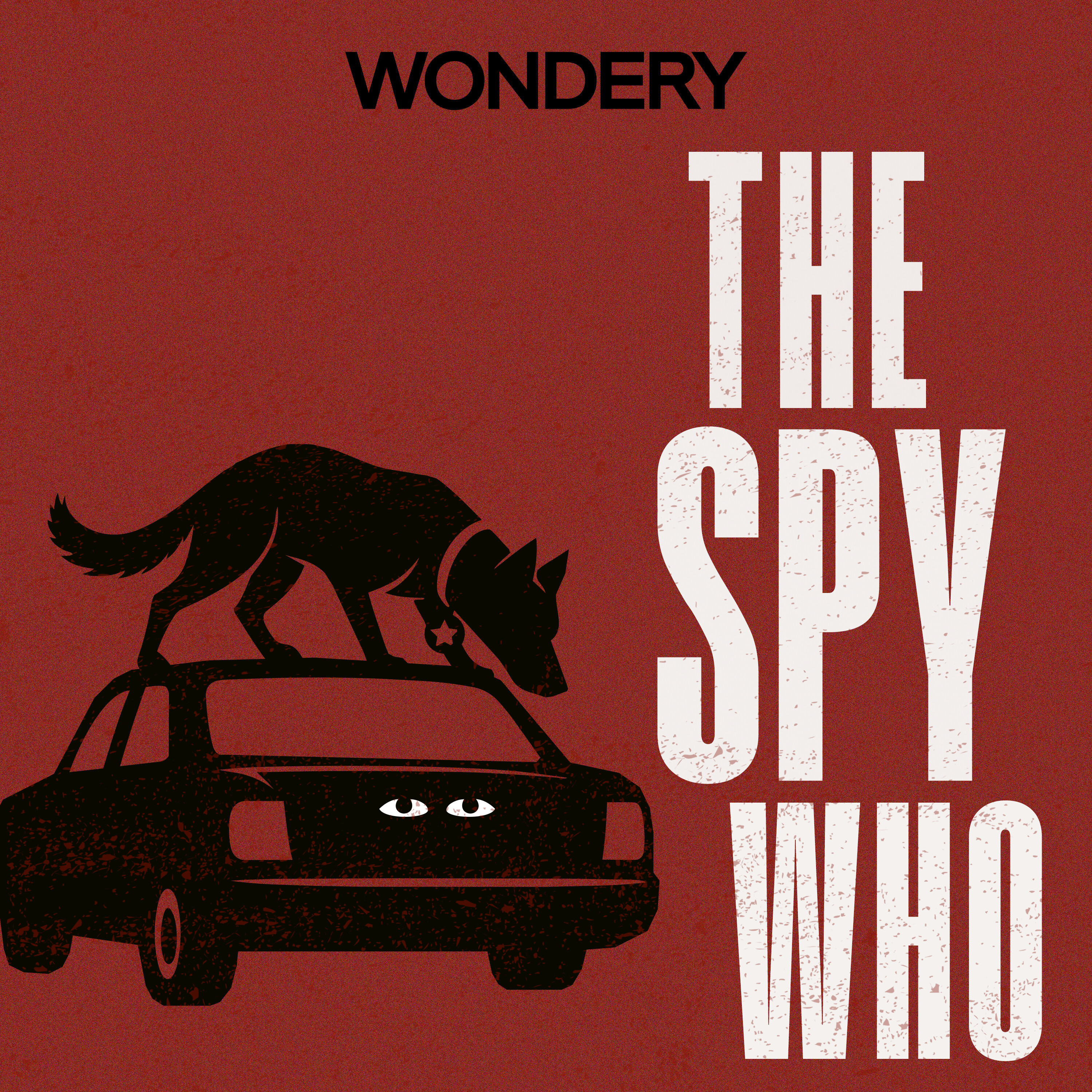
The Spy Who
Wondery